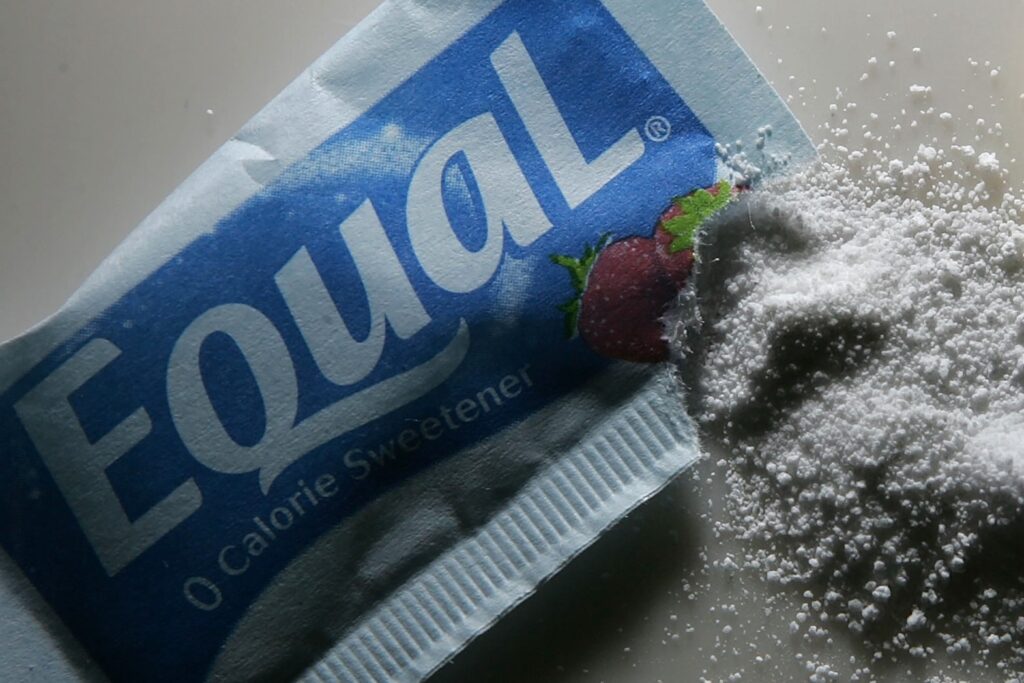Artificial sweeteners have become a ubiquitous part of modern life, with many people turning to these sugar substitutes to reduce calorie intake and manage health conditions like diabetes. The history of artificial sweeteners is a fascinating journey through the world of chemistry, innovation, and changing attitudes toward sugar and health. In this article, we’ll explore the evolution of artificial sweeteners, from the discovery of saccharin to the development of modern sugar substitutes, and discuss their health effects and controversies.
The story of artificial sweeteners began in the late 19th century when chemists were in search of a sugar substitute. The first breakthrough came in 1879 when a Russian chemist, Constantin Fahlberg, discovered saccharin, a compound derived from coal tar. It was the first commercially available artificial sweetener, with a sweetness hundreds of times greater than sugar.
While saccharin was initially well-received as a calorie-free alternative to sugar, it soon faced controversy. In the early 20th century, concerns about the safety of saccharin arose. In the 1970s, studies suggested a link between saccharin consumption and bladder cancer in laboratory rats, leading to warning labels on saccharin-containing products. However, later research debunked the cancer risk for humans, and these labels were eventually removed.
Around the same time, cyclamate, another artificial sweetener, was developed. Cyclamate was deemed safe for many years but was banned by the U.S. Food and Drug Administration (FDA) in 1969 due to concerns about its potential to cause cancer. Nevertheless, cyclamate is still used in various countries, including Canada and some European nations.
The 1980s marked a significant turning point in the world of artificial sweeteners with the introduction of aspartame. Marketed under the brand names NutraSweet and Equal, aspartame gained widespread popularity due to its sugar-like taste without the bitter aftertaste associated with saccharin and cyclamate.
Aspartame is derived from two amino acids, aspartic acid, and phenylalanine, and is metabolised by the body. Although extensively studied, aspartame has faced its share of controversy. Some individuals have a rare genetic disorder called phenylketonuria (PKU) that prevents them from metabolising phenylalanine properly. For individuals with PKU, consuming aspartame can lead to a buildup of phenylalanine in the body, which can be harmful. Aspartame has, however, been considered safe for the general population when consumed within established acceptable daily intake (ADI) levels.
The 1990s brought another breakthrough in artificial sweeteners with the development of Sucralose, marketed as Splenda. Sucralose is made from sugar through a chemical process that substitutes chlorine atoms for some of the sugar molecule’s hydrogen-oxygen groups. The result is a sweetener that is about 600 times sweeter than sugar.
Sucralose is unique in that it is not metabolised by the body and is excreted unchanged in the urine. This makes it nearly calorie-free and safe for individuals with PKU. Sucralose has become a popular choice for sweetening a wide range of products, from diet sodas to baked goods.
Other artificial sweeteners introduced in recent years include acesulfame potassium (Ace-K) and neotame. These sweeteners are often used in combination with other sugar substitutes to enhance sweetness.
In the early 21st century, stevia emerged as a natural alternative to artificial sweeteners. Stevia is derived from the leaves of the stevia plant and is often marketed as a “natural” sweetener. It has been used for centuries in South America as a sugar substitute.
Stevia gained popularity as consumers sought more natural and plant-based options for sweetening their food and beverages. It has a very low calorie content and a sweetness level 50 to 300 times that of sugar, depending on the steviol glycoside content. Stevia has been generally recognised as safe (GRAS) by the FDA and is used in a variety of food and beverage products.

The health effects of artificial sweeteners have been the subject of extensive research and debate. Here are some key considerations:
- Weight Management: Artificial sweeteners are commonly used as a tool for reducing calorie intake and managing weight. They can be beneficial for people who need to control their sugar consumption, such as individuals with diabetes. However, some studies suggest that the intense sweetness of artificial sweeteners may lead to increased cravings for sweet foods, potentially undermining weight management efforts.
- Blood Sugar Control: Artificial sweeteners do not significantly affect blood sugar levels, making them a valuable tool for people with diabetes who need to monitor their blood glucose. However, as mentioned earlier, they may have unintended effects on food cravings and eating behaviour.
- Oral Health: Artificial sweeteners are often used in sugar-free gum and candies to help prevent tooth decay. Unlike sugar, they do not promote the growth of cavity-causing bacteria.
- Gut Microbiome: Emerging research suggests that artificial sweeteners may influence the composition and activity of the gut microbiome. Alterations in the gut microbiota can have far-reaching effects on overall health, including metabolism and the immune system. More research is needed to fully understand these interactions.
- Appetite and Sweetness Perception: Artificial sweeteners can affect an individual’s perception of sweetness and, over time, lead to a preference for sweeter foods. This can potentially contribute to overeating and poor dietary choices.
- Individual Variability: Responses to artificial sweeteners can vary widely among individuals. Some people may experience adverse effects, such as headaches or gastrointestinal discomfort, while others tolerate them well. It is important for people to understand how their bodies respond to these sweeteners.
- Phenylketonuria (PKU): Individuals with PKU must avoid aspartame and other sources of phenylalanine to prevent serious health consequences. PKU is a rare genetic disorder that affects the metabolism of phenylalanine.
Artificial sweeteners have been the subject of numerous controversies and debates over the years. Some of the key points of contention include:
- Cancer Risk: Early studies in animals raised concerns about the cancer risk associated with saccharin and cyclamate. However, these findings did not translate to humans, and these sweeteners have been deemed safe for consumption.
- Aspartame and Neurological Effects: Aspartame has been associated with various reported adverse effects, including headaches, migraines, and neurological symptoms. Extensive research has not provided conclusive evidence linking aspartame to these symptoms, but individual sensitivities may exist.
- Sucralose and Gut Microbiome: Research into the effects of Sucralose on the gut microbiome is ongoing, with some studies suggesting potential alterations. The implications of these changes for human health remain a topic of debate and investigation.
The future of artificial sweeteners is likely to be shaped by ongoing research into their health effects and the evolving preferences of consumers. As the demand for natural and plant-based sweeteners continues to grow, the market for alternatives like stevia is likely to expand. In addition, novel sweeteners and blends that offer the sweetness of sugar without the calories are continually being developed.
The use of artificial sweeteners in the food and beverage industry is also expected to evolve in response to consumer demand for healthier and lower-sugar options. Manufacturers are likely to continue reformulating products to meet these demands while maintaining taste appeal.

The evolution of artificial sweeteners has been a remarkable journey from the discovery of saccharin to the development of modern options like aspartame, Sucralose, and stevia. These sugar substitutes have played a significant role in addressing the need for reduced-calorie and sugar-free products in a health-conscious world.
However, the use of artificial sweeteners is not without controversy and debate. While they offer certain advantages, they also come with potential health effects and challenges. It’s essential for individuals to make informed choices and consider their unique health needs and sensitivities when using artificial sweeteners.
The future of artificial sweeteners will likely involve a more extensive range of options, increased scrutiny of their health effects, and a continuing shift toward natural and plant-based alternatives. As we navigate the evolving landscape of sweeteners, the key is to strike a balance between enjoying the benefits of sugar substitutes and maintaining a mindful approach to our health and well-being.
Sources
- https://www.frontiersin.org/articles/10.3389/fnut.2021.746247
- https://www.acs.org/molecule-of-the-week/archive/s/saccharin.html#:~:text=Saccharin%20was%20the%20first%20widely,sweet%20taste%20on%20his%20hand.
- https://www.ncbi.nlm.nih.gov/pmc/articles/PMC8497813/
- https://www.biotech-asia.org/vol18no2/artificial-sweeteners-and-their-health-implications-a-review/




